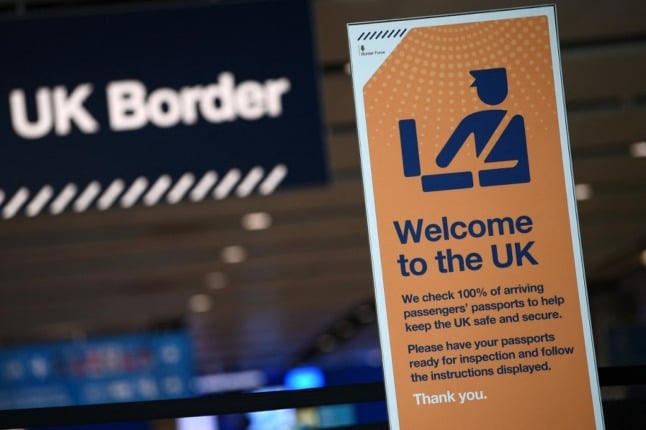With all the talk about the EU long-term residency permit and the proposed improvements there is no mention that UK citizens who are Withdrawal Agreement “beneficiaries” are currently being left out in the cold.
The European Commission has stated that we can hold multiple statuses including the EU long-term permit (Under a little-known EU law, third-country nationals can in theory acquire EU-wide long-term resident status if they have lived ‘legally’ in an EU country for at least five years) but in reality it is just not happening.
This effectively leaves Brits locked into their host countries while other third country nationals can enjoy some mobility rights. As yet, in Italy, it is literally a question of the computer saying no if someone tries to apply.
The lack of access to the EU long-term permit to pre-Brexit Brits is an EU-wide issue and has been flagged up to the European Commission but progress is very slow.
READ ALSO: EU government settle on rules for how non-EU citizens could move around Europe
My guess is that few UK nationals who already have permanent residency status under the Withdrawal Agreement are even aware of the extra mobility rights they could have with the EU long-term residency permit – or do not even realise they are two different things.
Perhaps there won’t be very large numbers clamouring for it but it is nothing short of discrimination not to make it accessible to British people who’ve built their lives in the EU.
They may have lost their status as EU citizens but nothing has changed concerning the contributions they make, both economically and socially.
An example of how Withdrawal Agreement Brits in Italy are losing out
My son, who has lived almost his whole life here, wanted to study in the Netherlands to improve his employment prospects.
Dutch universities grant home fees rather than international fees to holders of an EU long-term permit. The difference in fees for a Master’s, for example, is an eye-watering €18,000. He went through the application process, collecting the requisite documents, making the payments and waited many months for an appointment at the “questura”, (local immigration office).
On the day, it took some persuading before they agreed he should be able to apply but then the whole thing was stymied because the national computer system would not accept a UK national. I am in no doubt, incidentally, that had he been successful he would have had to hand in his WA “carta di soggiorno”.
This was back in February 2022 and nothing has budged since then. In the meantime, it is a question of pay up or give up for any students in the same boat as my son. There is, in fact, a very high take up of the EU long-term permit in Italy so my son’s non-EU contemporaries do not face this barrier.
Long-term permit: The EU’s plan to make freedom of movement easier for non- EU nationals
Completing his studies was stalled by a year until finally his Italian citizenship came through after waiting over 5 years. I also meet working adults in Italy with the EU long-term permit who use it for work purposes, such as in Belgium and Germany, and for family reunification.
Withdrawal agreement card should double up as EU long-term residency permit
A statement that Withdrawal Agreement beneficiaries should be able to hold multiple statuses is not that easy to find. You have to scroll quite far down the page on the European Commission’s website to find a link to an explanatory document. It has been languishing there since March 2022 but so far not proved very useful.
It has been pointed out to the Commission that the document needs to be multilingual not just in English and “branded” as an official communication from the Commission so it can be used as a stand-alone. But having an official document you can wave at the immigration authorities is going to get you nowhere if Member State governments haven’t acknowledged that WA beneficiaries can hold multiple statuses and issue clear guidance and make sure systems are modified accordingly.
I can appreciate this is no mean feat in countries where they do not usually allow multiple statuses or, even if they do, issue more than one residency card. Of course, other statuses we should be able to hold are not confined to EU long-term residency, they should include the EU Blue Card, dual nationality, family member of an EU citizen…
Personally, I do think people should be up in arms about this. The UK and EU negotiated an agreement which not only removed our freedom of movement as EU citizens, it also failed to automatically give us equal mobility rights to other third country nationals. We are now neither one thing nor the other.
It would seem the only favour the Withdrawal Agreement did us was we didn’t have to go out and come back in again! Brits who follow us, fortunate enough to get a visa, may well pip us at the post being able to apply for EU long-term residency as clearly defined non-EU citizens.
I have been bringing this issue to the attention of the embassy in Rome, FCDO and the European Commission for three years now. I hope we will see some movement soon.
Finally, there should be no dragging of heels assuming we will all take citizenship of our host countries. Actually, we shouldn’t have to, my son was fortunate, even though it took a long time. Others may not meet the requirements or wish to give up their UK citizenship in countries which do not permit dual nationality.
Bureaucratic challenges may seem almost insurmountable but why not simply allow our Withdrawal Agreement permanent card to double up as the EU long-term residency permit.
Clarissa Killwick,
Since 2016, Clarissa has been a citizens’ rights campaigner and advocate with the pan-European group, Brexpats – Hear Our Voice.
She is co-founder and co-admin of the FB group in Italy, Beyond Brexit – UK citizens in Italy.



 Please whitelist us to continue reading.
Please whitelist us to continue reading.
What exactly are ‘extra mobility rights’ ? Would have been so much simpler and fairer if the WA had maintained all our pre-Brexit rights, instead of just the country in which we are resident